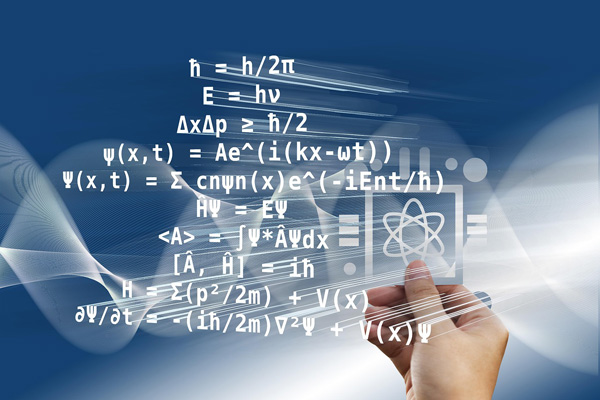In 2025, the world has entered a new era of the International Year of Quantum Science and Technology

[quantum mechanics. Photo Credit: Pixabay]
With the approach of 2025, the 'International Year of Quantum Science and Technology' proclaimed by the UN last year, there has been a recent surge in global efforts by nations vying for leadership in quantum innovation.
To reflect this growing momentum, several significant developments have recently made headlines:
South Korea launched its Quantum Strategy Committee to move from R&D to industrial applications.
The committee will oversee national initiatives across software, algorithms, and hardware.
In the U.S., IonQ deployed a cutting-edge quantum system at the Air Force Research Lab, supporting secure quantum networking and algorithm research development.
Although Albert Einstein helped pioneer the field, he famously referred to aspects of it as “spooky,” highlighting how counterintuitive its principles seemed, even to the scientific elite of the time.
Should quantum computers become commercially viable, they could perform calculations in seconds that would otherwise take classical supercomputers decades.
This computational power has the potential to revolutionize drug discovery, optimization problems, and accelerate the development of advanced AI.
Precision sensors enabled by quantum technology could detect diseases at earlier stages and enable personalized treatment plans, including faster and more accurate diagnoses for illnesses like cancer.
However, the rise of quantum technologies also raises critical concerns.
The first is technical feasibility.
Quantum systems are highly sensitive to external factors, such as temperature and electromagnetic interference, posing challenges for real-world implementation.
For instance, quantum sensors require extremely stable environments to operate reliably.
A second concern is cybersecurity.
Most online encryption systems today rely on mathematical problems that are difficult for classical computers to solve, such as RSA encryption.
Quantum computers could render these protections obsolete, exposing sensitive financial and personal data to new threats.
To address these risks, the U.S. National Institute of Standards and Technology (NIST) is developing quantum-resistant cryptography to safeguard data from future quantum decryption attacks.
At the same time, researchers are exploring quantum mechanics itself as a means to enhance security.
Quantum Key Distribution (QKD), which uses quantum entanglement to establish unbreakable encryption, is gaining traction.
In South Korea, teams from KAIST and Seoul National University are leading commercialization efforts, while tech giants like Samsung Electronics and SK Telecom have already implemented quantum security in their networks.
As 2025 casts a global spotlight on quantum mechanics, the field is no longer confined to laboratories or theoretical physics.
It is now a cornerstone of technological transformation, reshaping industries, redefining cybersecurity, and challenging our very understanding of the universe.
While much remains to be explored, one thing is certain: quantum science is no longer just the future– it is the present.

- Aiden Been Jo / Grade 11
- Ssangyong High School

![THE HERALD STUDENT REPORTERS [US]](/assets/images/logo_student_us.png)
![THE HERALD STUDENT REPORTERS [Canada]](/assets/images/logo_student_ca.png)
